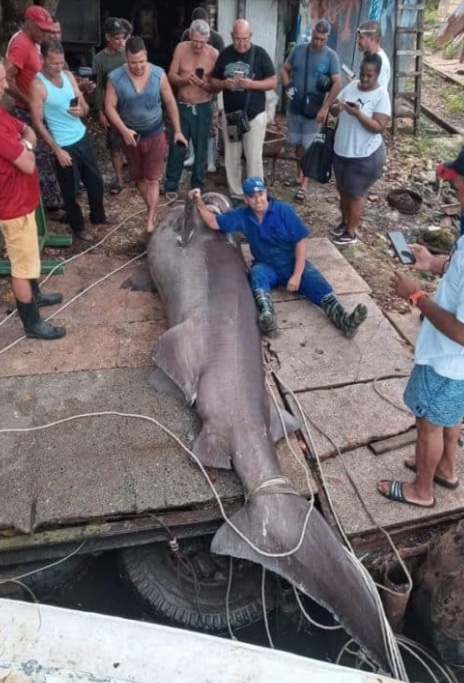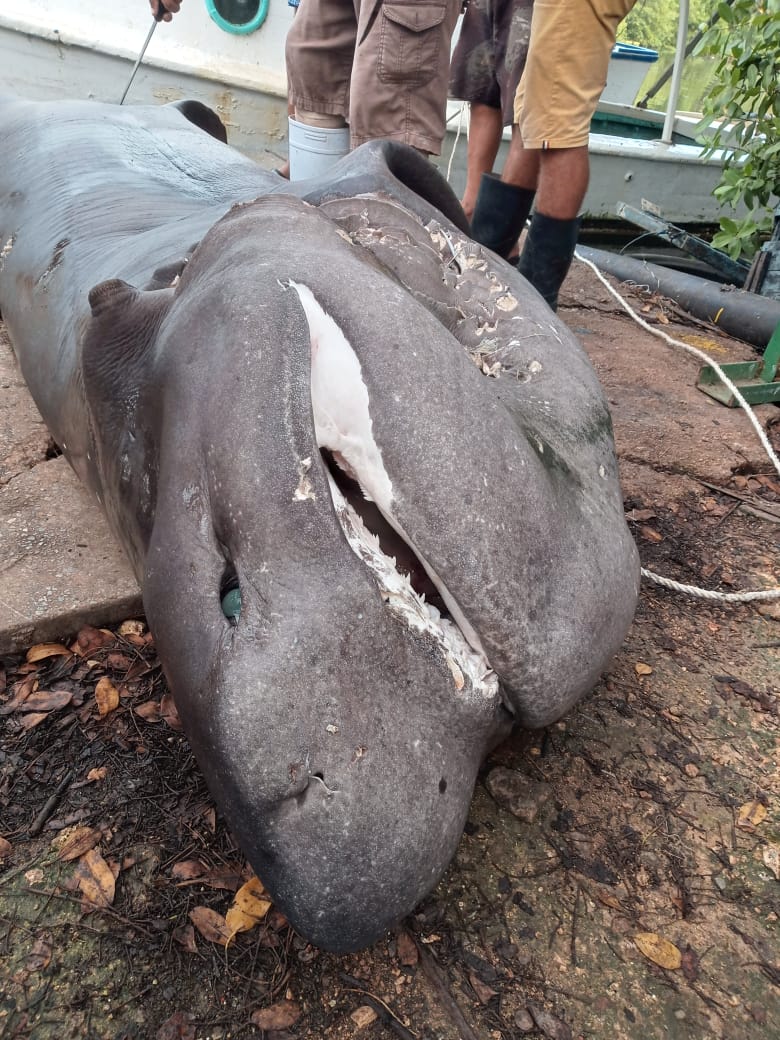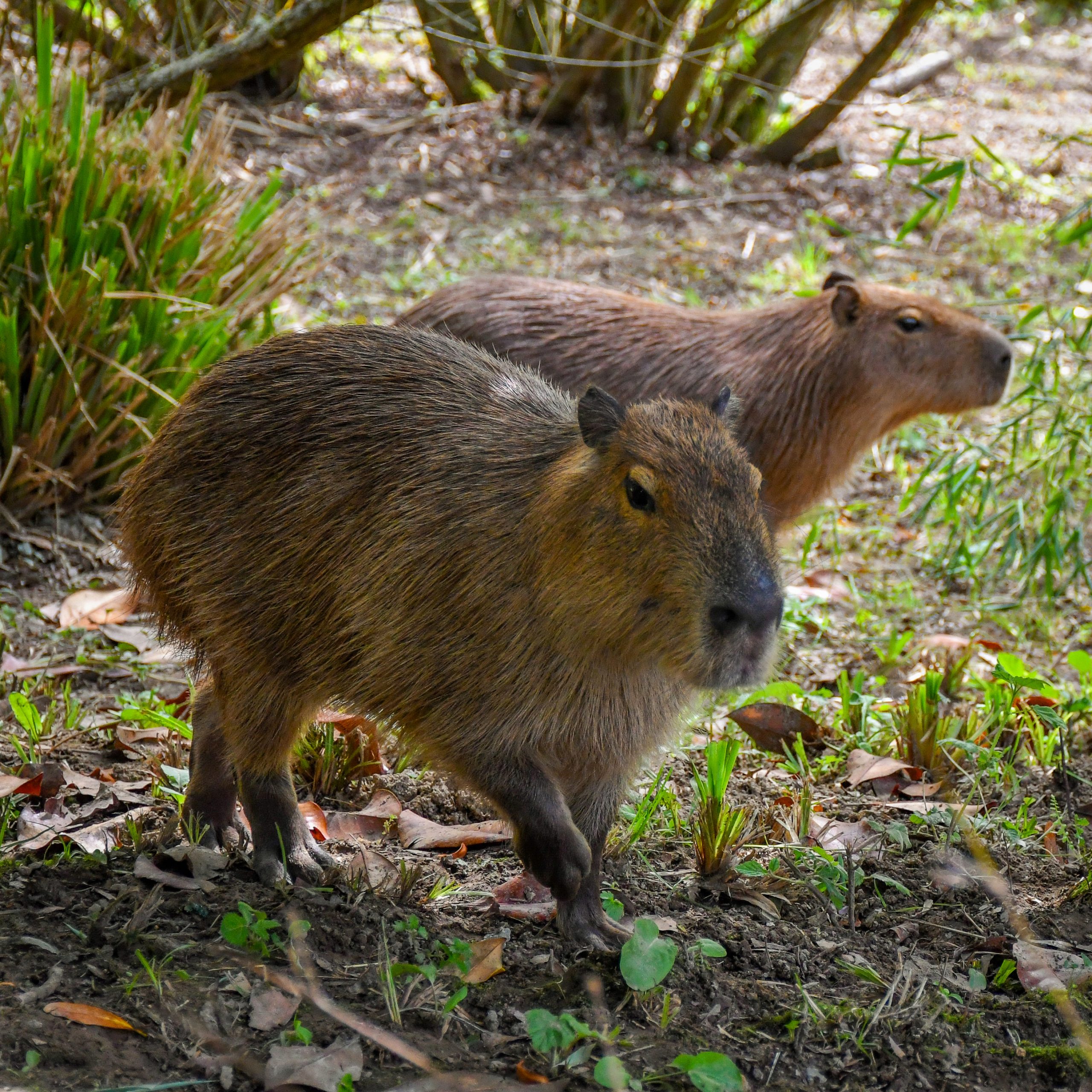A group of fishermen were left awestruck when they stumbled upon a rare, colossal 13-foot-long shark bobbing on the ocean’s surface.
The fishermen were taken aback to find this immense specimen entangled in abandoned fishing equipment, already lifeless when they made their discovery.
They surmise that a powerful storm in the Straits of Florida, USA, had washed the shark to the spot where they encountered it.
These subsistence fishermen were left astounded, for such sharks are typically denizens of the ocean’s profound depths, rarely venturing into shallower waters.

The sheer size and weight of the shark made it impossible for the fishermen to hoist it onto their boat. Instead, they opted to tow it a short distance back to the shores of Matanzas, Cuba, situated just 50 miles east of Havana. There, they gently laid the magnificent creature on the ground, taking memorable photographs alongside it.
Local reports identify the shark as a ‘cañabota,’ believed to be a bluntnose sixgill shark, colloquially known as the cow shark. This species is categorized as ‘near threatened’ by the International Union for Conservation of Nature, signifying its susceptibility to potential endangerment in the not-so-distant future.
According to a 2020 assessment by B. Finucci et al., the bluntnose sixgill shark has witnessed a population decline of 20 to 29 percent over the past three generations, spanning 160 years. The authors noted, “It is sporadically reported as both targeted and accidental catch in industrial and artisanal demersal trawl, longline, handline, traps, and gillnet fisheries throughout its range, and is also a target for recreational anglers.”

Reports suggest that these sharks can attain lengths of up to 20 feet.
Following the publication of this story on social media, public reactions varied widely. Some individuals expressed sorrow and disapproval, such as Yanara, who commented, “How disheartening, honestly. I understand there’s widespread hunger in Cuba, but these photos and the display sadden me deeply. There’s so much we need to learn.” Anabel also shared, “Honestly, the photos are painful to me.”
In contrast, others took a more lenient stance. Anisley remarked, “If it can provide sustenance to a few, then it’s not bad news.” Alberto weighed in, saying, “Consider how many sharks are captured globally. Furthermore, here in Cuba, a chance encounter with a solitary shark of this magnitude is a noteworthy catch. There’s no need for further lament; humans inflict far greater harm on our planet.”






